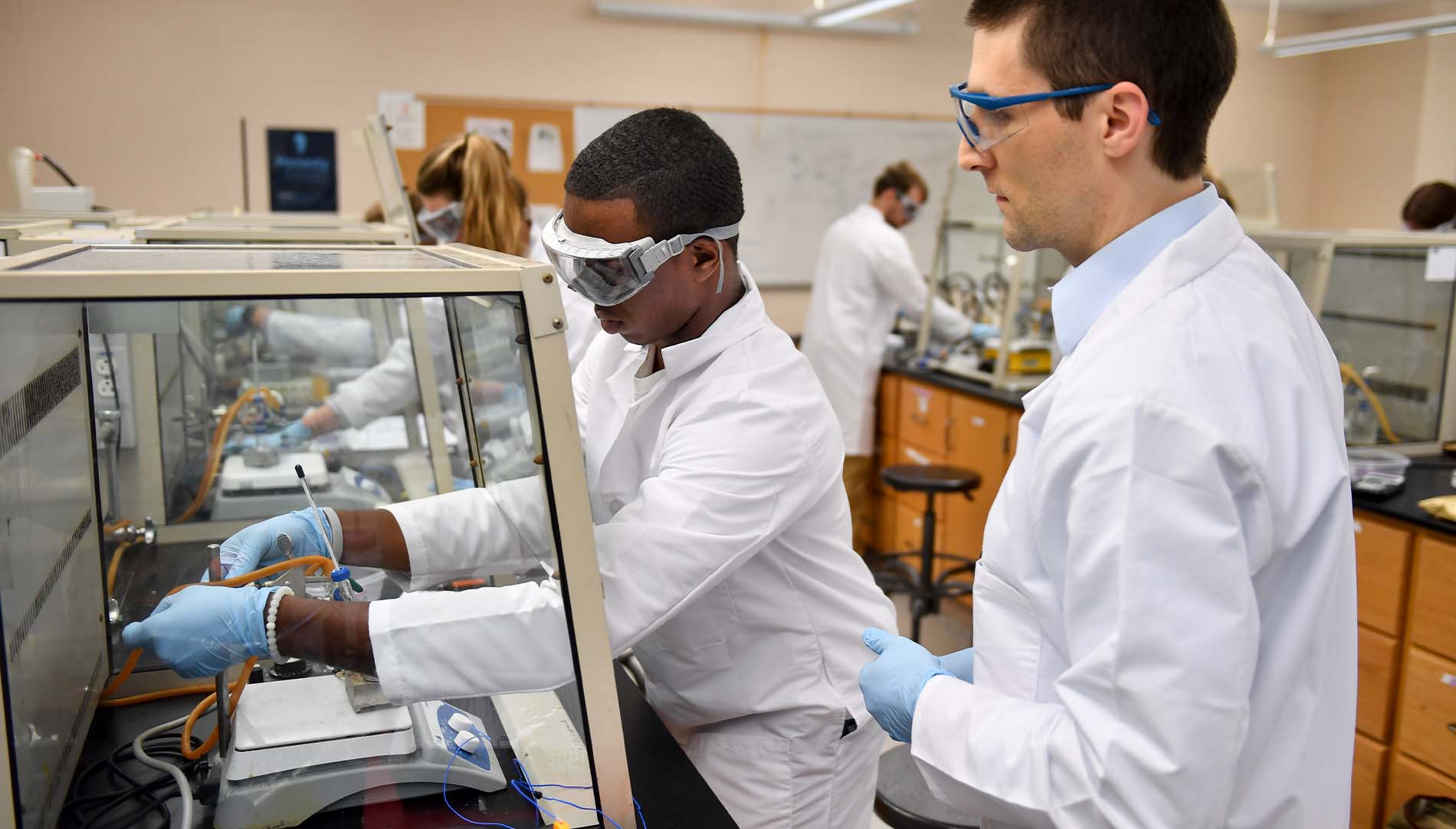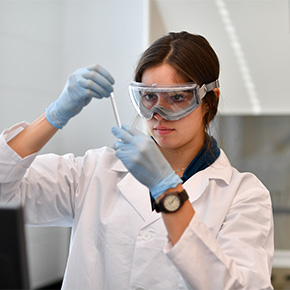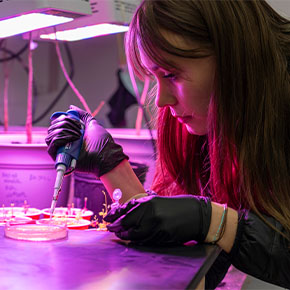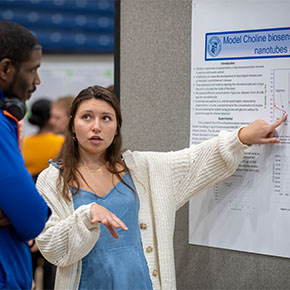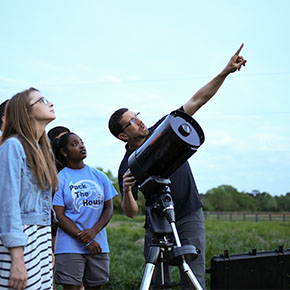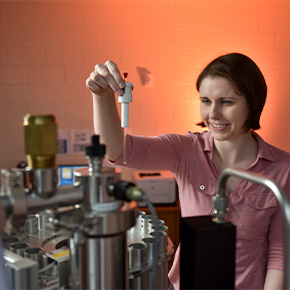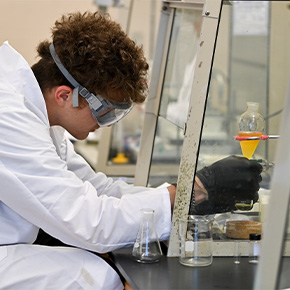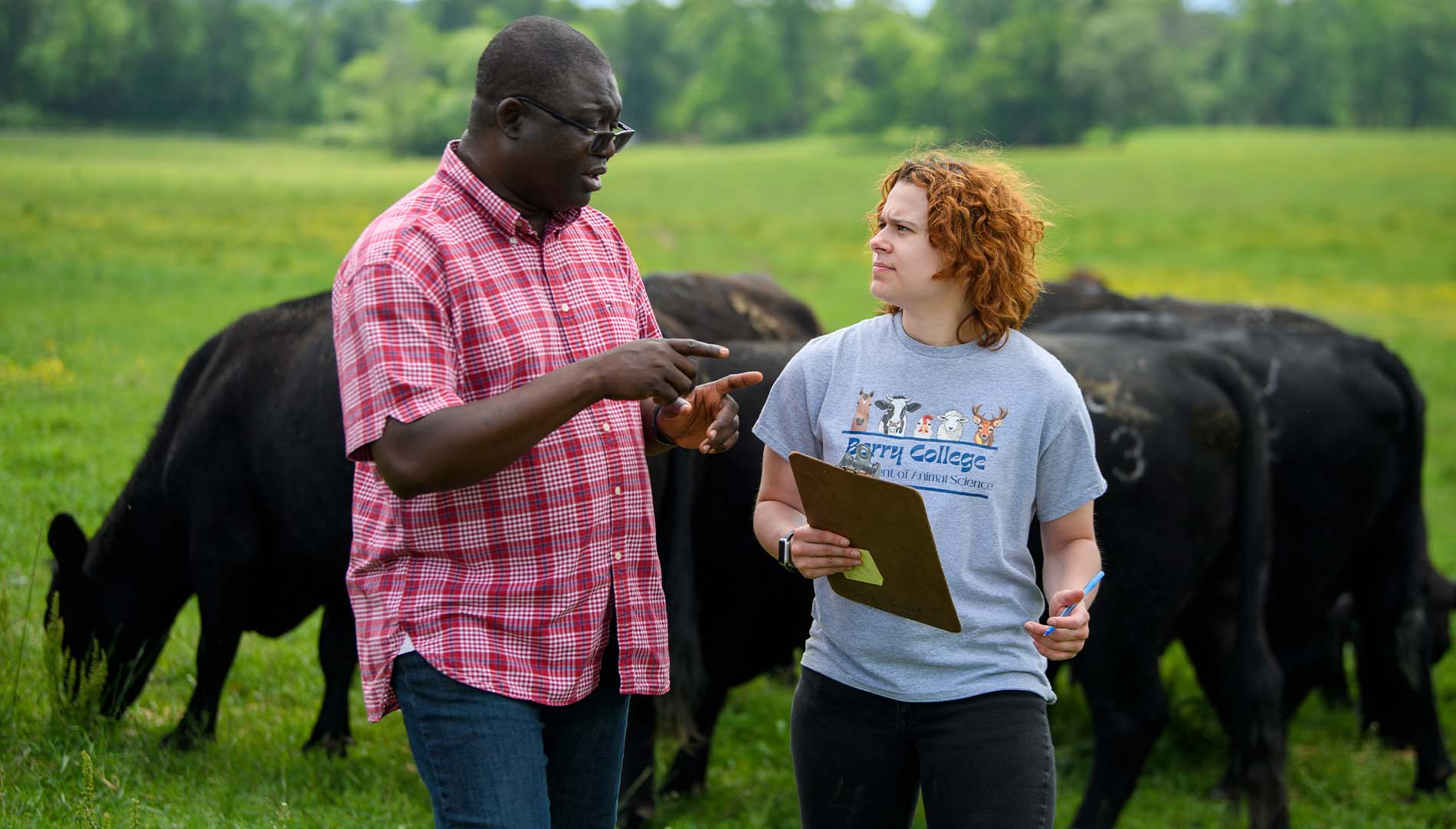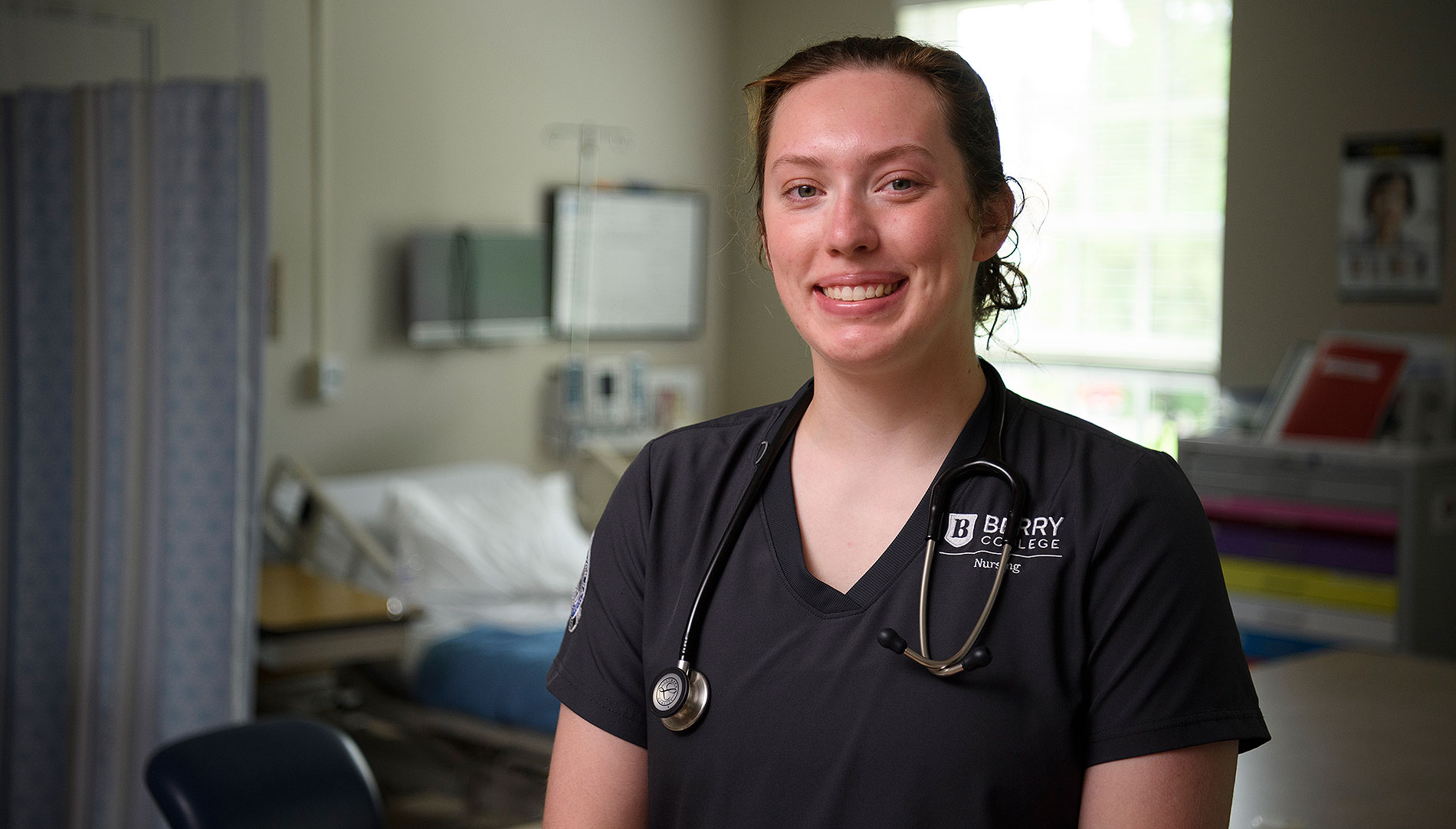How to know which area is right for you
Now you know where you might apply scientific expertise, the next step is to get help thinking through your best fit. College campuses are a great place to dive in deeper.
Get Campus Experience
Chemistry professor Mark Turlington says one undergraduate experience trumps all others giving science students the experience they need:
“Chemistry students can find fulfilling careers in a variety of industries including pharmaceuticals, agriscience, quality control analysis, plastics and textiles manufacturing and energy sectors. Others choose to teach, either at the high school or college level. But in all cases, involvement in undergraduate research is an excellent way to gain experiences and develop skills that employers and graduate programs look for in applicants. In addition to building a resume, research helps students get more out of their coursework as they apply their chemical knowledge to real-world problems. Undergraduate research also gives students the opportunity to find out what types of chemistry they enjoy.”
Higher education experts suggest looking for other on-campus opportunities related to the work you are considering. Beyond research experience, attend panels when your campus hosts experts in your field. Join clubs related to science such as Allied Health or One Health initiatives. Connect with your campus equivalent to Berry’s Center for Personal and Professional Development to see if there are personality assessments to help you consider your best fit. But, most of all, put yourself in spaces where you can learn more about those opportunities.
Find an internship
Once you have a good idea of a potential career path, try it through an internship opportunity. For example, Berry College biology major Abbey Wiseman confirmed her career goals through a marine conservation internship in DeWees Island, South Carolina.
She said, “Beyond the research intent, I gained knowledge of wildlife management such as invasive species removal, population surveying, animal relocation, education programs and even working with endangered animals like loggerhead sea turtles!”
An internship can be a great opportunity to gain insight and figure out if a work environment is a good future fit.
Connect with professionals and alumni
Beyond getting experience yourself, being a part of a college allows you to learn from the experience of others. Networking with alumni and local experts can give you a clear perspective on what a job is like in the day-to-day or important factors about the work you might not have considered.
Pre-health Advisor Chris Mingone explains, “Some students come with an idea of medical school. Then, through advising, shadowing and more, students begin evaluating their choices. If a student decides that medicine is not the right path, many times it is because they realize they enjoy asking questions and exploring. It has similarities to what a medical doctor does but with some differences. The questions, the thrill in forming hypotheses, challenge of failed experiments and the satisfaction in data collection and publication, working with your hands and mind, in a slightly different way – these experiences are sometimes what students are looking for. It is our job to help them figure that out.”
Consider graduate work
Although biology and chemistry majors can get jobs right out of college, there are many opportunities that pay more and offer job freedom and flexibility with a graduate degree. Talk with your advisors or your school’s Center for Personal and Professional Development to see if applying to graduate school might be an important step in your career.
